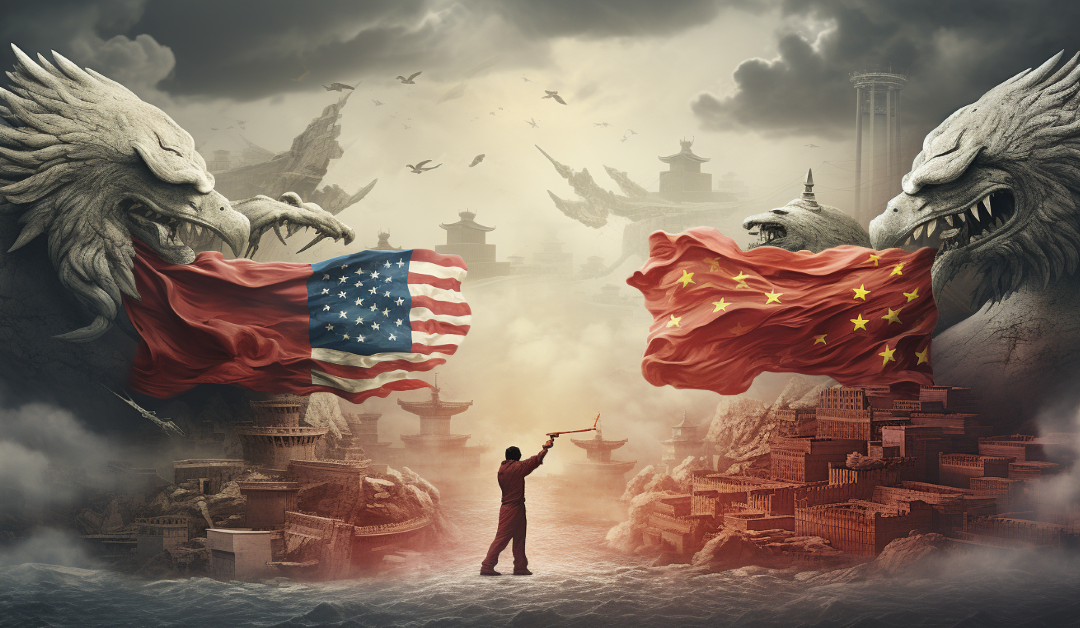
by Melissa Adams | Aug 23, 2023 | Finance
Introduction
As an investor, it’s good to understand the crucial role venture funds play in the world of finance and innovation. This article delves into the realm of venture funds, exploring their definition, importance, and the profound impact they have on driving innovation and fostering economic growth.
Understanding Venture Funds
Venture funds, also known as venture capital funds, are investment vehicles that pool money from various sources, such as high-net-worth individuals, institutional investors, and corporations, to invest in early-stage and high-growth companies. These funds are managed by experienced venture capitalists who identify promising startups with high growth potential and provide them with funding in exchange for equity ownership.
Why Venture Funds Matter
- Fueling Innovation: Venture funds play a pivotal role in nurturing innovation by providing crucial funding to startups that are often too risky for traditional lenders. This support allows entrepreneurs to develop groundbreaking technologies, products, and services.
- Early-Stage Funding: Startups often face difficulty obtaining funding from traditional sources due to their unproven track record. Venture funds bridge this gap by injecting capital into early-stage companies, enabling them to bring their ideas to life.
- Job Creation: The startups funded by venture capital often grow rapidly, leading to the creation of jobs and opportunities in various sectors. This job creation contributes to local and national economic development.
- Risk Mitigation: Venture funds help diversify investors’ portfolios by allocating a portion of their capital to high-risk, high-reward ventures. This diversification strategy can help mitigate losses from other investments.
- Expertise and Guidance: Beyond financial investment, venture capitalists provide valuable mentorship, industry expertise, and networking opportunities to startups, enhancing their chances of success.
Venture Fund Lifecycle
- Fundraising: Venture funds raise capital from investors by showcasing their investment strategy, track record, and potential for high returns.
- Deal Sourcing: Venture capitalists actively search for startups that align with their investment criteria and show promise for substantial growth.
- Due Diligence: Extensive research is conducted on potential investment opportunities to assess their viability, market potential, and management team.
- Investment: Funds are invested in selected startups in exchange for equity ownership, with the aim of supporting growth and expansion.
- Value Addition: Venture capitalists provide strategic guidance, mentorship, and resources to help startups scale and succeed.
- Exit Strategy: Venture funds aim to exit their investments through avenues such as initial public offerings (IPOs) or acquisitions, realizing returns on their investments.
Risks and Challenges
- High Risk: Venture capital investments are inherently risky due to the uncertainty associated with startups’ success and market acceptance.
- Liquidity Concerns: Investments in startups are illiquid and may take years to yield returns, potentially tying up capital for extended periods.
- Market Volatility: Economic downturns can impact the success of startups and the ability of venture funds to exit their investments profitably.
Conclusion
Venture funds are the driving force behind innovation, transforming innovative ideas into successful businesses that contribute to economic growth and job creation. By providing much-needed capital, expertise, and guidance to startups, venture funds serve as catalysts for technological advancement and disruption. This understanding can guide investors, entrepreneurs, and policymakers in making informed decisions that foster a dynamic and prosperous innovation ecosystem.

by Joseph Reagan | Aug 21, 2023 | Finance
Key Points
- China’s Country Garden, a real estate developer, is set to be removed from Hang Seng Index on Sept 4 and be replaced by Sinopharm.
- Country Garden Services will also be removed from the Hang Seng China Enterprises Index and be replaced by Trip.com following reports that the real estate company is struggling financially.
China’s real estate sector continues experiencing challenges as big companies like Country Garden and EverGrande remain distressed. The two companies, once the largest in the country, are now nearing their end as EverGrande files for bankruptcy and Country Garden shows displeasing business prospects.
Chinese real estate sector continues being hammered as Country Garden and EverGrande go down
Country Garden, once China’s leading property developer, has been struggling to keep afloat in the ongoing economic drawbacks, with its shares plunging 70% YTD (year-to-date).
This company is not struggling alone in the real estate sector, as its competitor, EverGrande, has also filed for bankruptcy in the US. The ongoing meltdown in the Chinese real estate sector comes as the economy is stalling, proving not as strong as the world expected it to be following the post-Covid 19 open up.
As a result, productivity is decreasing in the country, which is a bad factor as the US and EU are rising against their global supply chains as their economic ties with them sour. In August, Country Garden failed to meet its bond coupon payments, which prompted issuing of a profit warning and suspending the trading of its 11 mainland China bonds.
It also has under 30 days to make the missed coupon payments on two dollar bonds coupons worth $22.5 million. As a result of this dismal performance and displeasing business prospects, the company has been replaced in Chinese Indexes, with bankruptcy remaining in sight.
Keep watching Fintech Express for more updates on this and other fintech-related developments.

by Chelsea Florence | Aug 17, 2023 | Finance
Key Points
- China’s Ministry of Commerce could respond to Biden’s executive order to restrict investments in advanced Chinese technology
- US Commerce Secretary Gina Raimondo is set to visit the country amid a souring business relationship.
US Commerce Secretary Gina Raimondo is set to visit China as reports spread that the Asian nation could announce countermeasures to Bidens Executive Order against its advanced technology.
US Commerce Secretary Gina Raimondo to tour China following Biden’s Executive Order
The US and China have been experiencing deteriorating business ties lately as the two major world economies remain opposites in political spectrums. China has been associated with Russia and other non-Nato nations that seek to dethrone the dollar and have thus been under multiple economic sanctions.
As such, the Asian nation seeks to completely break away from the dollar, a sentiment the US shares. In Q2, the US asked the EU to follow suit and reduce its dependence on Chinese global supply chains. The EU and the US have depended on China’s advanced technology supply chains for items like chips.
President Biden has released an executive order seeking to cut the dependency on such Chinese items. As a retaliation plan, China’s Ministry of Commerce said on Thursday that it would also respond to the executive order with its restrictions against the US Economy.
“On that basis, we are making a comprehensive assessment of the executive order’s impact and will take necessary countermeasures based on the assessment’s results,” The ministry’s spokesperson said.
Bidens executive order over security concerns restricts our investments in Chinese quantum computing, artificial intelligence, and semiconductors industries. The targeted industries have been the Asian nation’s strongest ones globally, prompting a response from the nation as its economy is stalling.
While the two nations remain at each other’s necks, it could be catastrophic for global supply chains if they alienate each other as such. The US Commerce Secretary Gina Raimondo is set to travel to China to hold bilateral talks and find a way forward for the two nations weeks after Treasury Secretary Janet Yellen traveled there for similar purposes.
Keep watching Fintech Express for updates on macro-finance and other fintech-related developments.

by Samuel Mbaki | Aug 15, 2023 | Finance
Key Points
- The Bank of Russia has introduced new interest rates as the Ruble falls to hit an almost 17-month low against the dollar.
- The interest rate hike was done during an emergency meeting after the Ruble was gripped by a drop in value past the 100 mark against a US dollar
Bank of Russia has hiked interest rates by 350 basis points to 12 % during an emergency meeting as Moscow looks into halting the rapid depreciation of the Ruble.
The Bank of Russia introduced higher interest rates to tame rising inflation
The Ruble slumped past the 100 mark to the dollar on Monday, with President Putin’s economic advisor, Maxim Oreshkin, blaming lax monetary policies due to the fall in the coin’s value.
Oreshkin wrote an article to the Russian State-owned Tass news agency saying the plunging currency and acceleration in inflation result from “loose monetary policy.” Consequently, the Bank of Russia announced an emergency meeting on Tuesday to reassess its key interest rates, which stood at 8.5%.
In the meeting, they announced a hike by 350 basis points taking the total interest rates to 12%. As a result, faith in the Rubble increased with it, dropping to 95 against the dollar during the time of writing.
Keep watching Fintech Express for more updates on this and other finance-related developments.

by Samuel Mbaki | Aug 14, 2023 | Finance
Key points
- China’s economic turmoils keep increasing as credit data released Friday shows a slump in demand for households and businesses borrowing money.
- Developer Country Garden suspended trading at least 10 of its mainland-china traded Yuan bonds.
China’s economy is set to endure more pain as a slump in demand for borrowing money reflects in recent credit data. Real estate problems now persist as consumer sentiment grows weak.
More pain for Chinese markets going forward?
The Chinese economy has been heavily impacted by economic installment. What was considered a promising economy to turn around world economic issues via opening supply chains has now more than stalled.
Credit data released last Friday show the country is experiencing increasingly low demand for borrowing money. This, in turn, affects property markets as fewer people are expected to invest in real estate in the coming months there. Once a very stable real estate company, Country Garden is now on the brink of default, with many other competitors in turmoil.
New local currency bank loans plunged 89% in July from June to 345.9 billion Yuan, much lower than the forecasted 800 billion Yuan. This was the lowest loan number since late 2009. The real estate sector, where most of the country’s household wealth is, has been impacted, and concerns are rising around it.
Developer Country Garden announced this weekend that it suspended at least 10 mainland China-traded yuan bonds. Last week, it missed coupon payments on two U.S. dollar-denominated bonds, with its U.S. bonds accounting for just under half of outstanding high-yield U.S. dollar-denominated bonds.
Keep watching Fintech Express for more updates on finance and other fintech-related developments.

by Samuel Mbaki | Aug 14, 2023 | Finance
Key Points
- The Russian Ruble has slumped harder against the US Dollar as it trades at a near 17-month low.
- President Vladimir Putin’s economic advisor blames loose monetary policy for the rapid depreciation of the Ruble.
- The Bank of Russia blames the country’s shrinking trade balance as its current account surplus fell 85% YoY from January to July.
Russian Ruble fell to 17-month record levels of 100 per USD on Monday as the country battles a shrinking trade balance. The current account surplus dropped by 85% YoY from January to July as Western sanctions pushed the country further.
Russian Ruble trades at 100 against the US dollar
Since Russia invaded Ukraine, the country has been experiencing turmoil with holding up the value of the Rubble as harsh economic sanctions from the West have been imposed on it. The West has also been aiding Ukraine economically in the war, which prompts Russia to spend more to sustain its offensive missions.
As an aftermath, the Russian Ruble slid past the 100 mark against the USD on Monday, nearing a 17-month low. The country’s presidential economic advisor blamed loose economic and monetary policy for weakening the Rubble.
This year alone, the Ruble has lost value by 30% against the greenback. This situation has prompted the Bank of Russia to blame the country’s balance of trade as its current account surplus fell 85% year-on-year from January to July.
“A weak ruble complicates the restructuring of the economy and negatively affects the population’s real incomes. In the interests of the Russian economy — a strong ruble,” President Putin’s economic advisor Maxim Oreshkin said.
Last week, the Bank of Russia halted foreign currency purchases for the remainder of the year to shore up the currency as the country battles increasing isolation from Western sanctions.
While fears of rising inflation grip Russia, its GDP exceeded expectations and grew by 4.9% year on year in Q2, per figures from the Federal State Statistics Service, which s a rebound from a 1.8% contraction in Q1. Keep watching Fintech Express for more updates on finance and other fintech-related developments.






